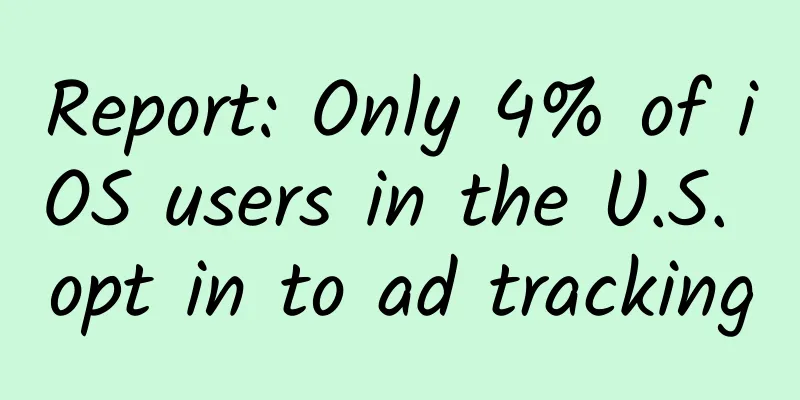Report: Only 4% of iOS users in the U.S. opt in to ad tracking

|
According to Flurry Analytics, which has been tracking daily opt-in and opt-out rates following the release of iOS 14.5 late last month, about 4% of daily users in the U.S. allow apps to access their Identifier for Advertisers (IDFA) tags. This number is based on a sample of 2.5 million daily mobile active users.
If other countries are taken into account, the percentage increases, with about 11% of the 5.3 million daily active users worldwide opting in to ad tracking. The daily percentage is calculated by dividing the number of devices that have opted in by the total number of devices that have opted in and out using AT&T. Interestingly, Flurry's data suggests that people are actively opting out of tracking requests. The company found that only 4% of iOS 14.5 users disabled the "Allow Apps to Ask to Track" option in Settings. Turning off the "Allow Apps to Ask to Track" option automatically limits IDFA data access and excludes apps from requesting tracking permissions. Integrated into the latest iOS, iPadOS, and tvOS revisions, AT&T is a new feature that requires developers to ask before tracking users' movements across other apps and the web. Critics say Apple has touted it as an important user privacy tool, but requiring permission for ad tracking will make users reluctant to participate, hurting businesses that rely on advertising revenue. Apple offers a suite of secure advertising attribution tools as privacy-focused alternatives to industry-standard tracking methods. These systems, including SKAdNetwork and Privacy Click Measurement, do not directly identify users and can therefore be integrated without explicit user permission. Developers are still adjusting to the new guidelines, and a report published shortly after iOS 14.5 debuted suggested that about 10,000 apps had created the necessary user request prompts. According to some estimates, the App Store has about 2 million apps. |
<<: Replacing Android! Huawei's Hongmeng OS plans to adapt to Qualcomm platform
>>: What is the reason for inaccurate mobile phone positioning and how to solve it
Recommend
"Dolphins can smile", the biggest lie in the aquarium
During the National Day holiday, the aquarium is ...
New Wi-Fi technology is available that's better suited for smart homes
[[161680]] 1. New WiFi technology is emerging, mo...
A fox is not a raccoon, and an alligator is not a crocodile? How did the ancients name animals?
If you ask people what their favorite animal is, ...
Meituan Operations: The Marketing Logic of Meituan Takeaway Monthly Card
Buy monthly pass at super low price First, let’s ...
Talking about WeChat ban again: Why do we need "net neutrality"?
[[127866]] Last week, I proposed an extended conc...
Will wearing a mask for a long time cause lung nodules? Rumors on the September Science Rumors List
1. “The harm of betel nut is not as serious as ad...
New media operations: 3 writing strategies used by big Vs! Don't ignore it!
Since 2013, every year, people would ask, “What i...
360 advertising promotion costs, billing methods, and click prices!
What is the billing method for 360 search promoti...
Six major tech failures of 2014: Google Glass and Bitcoin are among them
[[126680]] Google Glass Although we read about sc...
New brand marketing, new Tik Tok marketing techniques!
In 2019, video marketing played an increasingly l...
A condiment that many people can’t stop eating and are addicted to. Thank you, Shanxi people!
For most people, vinegar is probably a condiment ...
The arrival of HTML5 era: the official version of HTML5 standard specification is released
The World Wide Web Consortium (W3C) announced tha...
Chinese scientists have made new research results! 2 million people may be reborn!
Approximately 2 million people worldwide suffer f...
How much does it cost to make the Tieling baking utensils mini program? Tieling baking utensils applet production price inquiry
There are two types of Tieling baking utensils We...
4 secrets of programmers to maintain their value
In China, many people say that programmers are a ...









